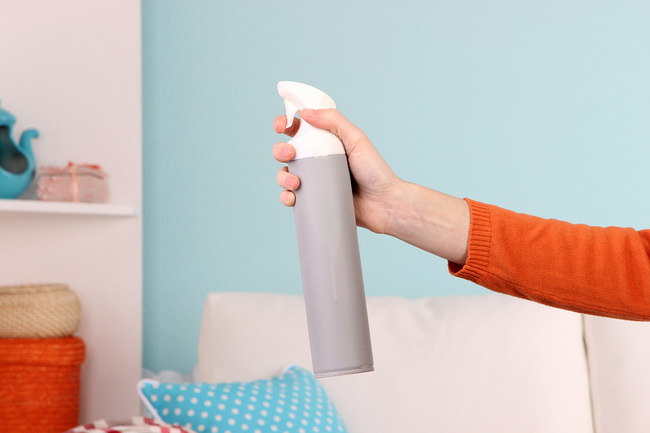- Make It Yourself Lavender Heart-Shaped Bath Bombs!
- 20 Things You Never Knew About “Down There”
- 12 Best Foods For Those Suffering From Arthritis Pain
- 12 Personal Hygiene Mistakes Almost Everyone Makes (Mom Never Told You About #4!)
- 15 Medicinal Plants And Herbs From The Cherokee People
- 12 Mind-Blowing Benefits Of Drinking Coconut Water During Pregnancy
- 12 Outstanding Winter Foods That Won’t Fatten You Up Like A Christmas Turkey
Top 10 Household Items Known To Cause Cancer

Photo credit: bigstock.com
You might be shocked to find that common household items contain chemicals known to cause cancer. We assume they are safe, right? After all, don’t we have government agencies to oversee these things? Wouldn’t they ban their sale if they were dangerous?
In a word: No.
There are literally thousands of chemicals and the FDA or EPA simply doesn’t have the manpower to do independent testing. They generally allow the companies that make these products to conduct testing and simply submit results saying that they have been found safe. There are no tests done regarding accumulation in the body, and no tests done about chemical interactions. Tests are performed on animals (which do not always translate to safety for humans) until they find a dosage where the animal shows no sign of damage. They then cut that dose by a certain percentage and say that number is safe. If this process doesn’t scare you, it should.
A typical American household contains about 62 toxic chemicals, on average. This doesn’t include the toxins we are exposed to outside the home from pesticides sprayed on foods, air pollution, water pollution, EMFs, and any toxins we encounter at our workplace.
Many of these common household items have been scientifically linked to hormone disruption, asthma, neurotoxicity, reproductive problems, and cancer.
Although it’s nearly impossible to avoid all toxic chemicals in today’s modern world, you can greatly lower your risk of developing chronic disease or cancer. Once you identify the dangers, you can eliminate them from your home and use natural, non-toxic alternatives.
Keep reading for 10 of the most common household items that contain cancer causing chemicals.
1. Air Fresheners/Scented Products
This is probably the number one product that everyone has in their home in one form or another. Any household item that contains some type of fragrance or “parfum” has a toxic chemical called phthalates. This includes everything from air fresheners, to scented laundry soap; these sweet smelling poisons have been tested by the Natural Resources Defense Council and found that phthalates cause problems with the production of male hormones. Another study performed by the University of Washington in 2008 found that air fresheners emitted chemicals that are known carcinogens. Because many of these products want to keep their scent a secret from competitors, you won’t find the word phthalates on any label, however, if you see the words “parfum” or “fragrance,” then more than likely that product contains phthalates.
Although the main exposure to this toxin is through inhalation, they can also be absorbed through the skin via scented soaps or lotions. This is particularly dangerous as the skin has no protection from chemicals, unlike our digestive systems; chemicals on the skin go directly into the blood stream and the organs of the body.
As much as possible, choose fragrance free products. You can make your home smell nice with natural essential oils and by using natural cleaning products.

































Robert Wiegand
Apr 11, 2015 at 11:59 pm
I was unaware of any of these potentially cancer causing products! This is deeply concerning. I am going to rid my house of these items.
Glen
Mar 16, 2018 at 10:28 am
everybody uses these things, why don`t everybody have cancer?
John Sikora
May 2, 2018 at 10:18 am
There are a lot more then air fresheners and scented products. Non organic foods contain GMOs (genetically modified organisms) that can and will cause cancer. Fragrance is in shampoos, skin care products, soaps and candles. Fragrance (FOs) are synthetically made chemicals scent compounds. Even if they are are labeled “ natural ” they often have fragrance in them. The only way to know for sure is to look in the in ingredients for Fragrance. Also be be careful about laundry detergent. Look out for dioxane, Nonylphenol ethoxlate, color, stabilizers and alcohol ethoxlate. all of these things are known to cause cancer and may cause cancer.